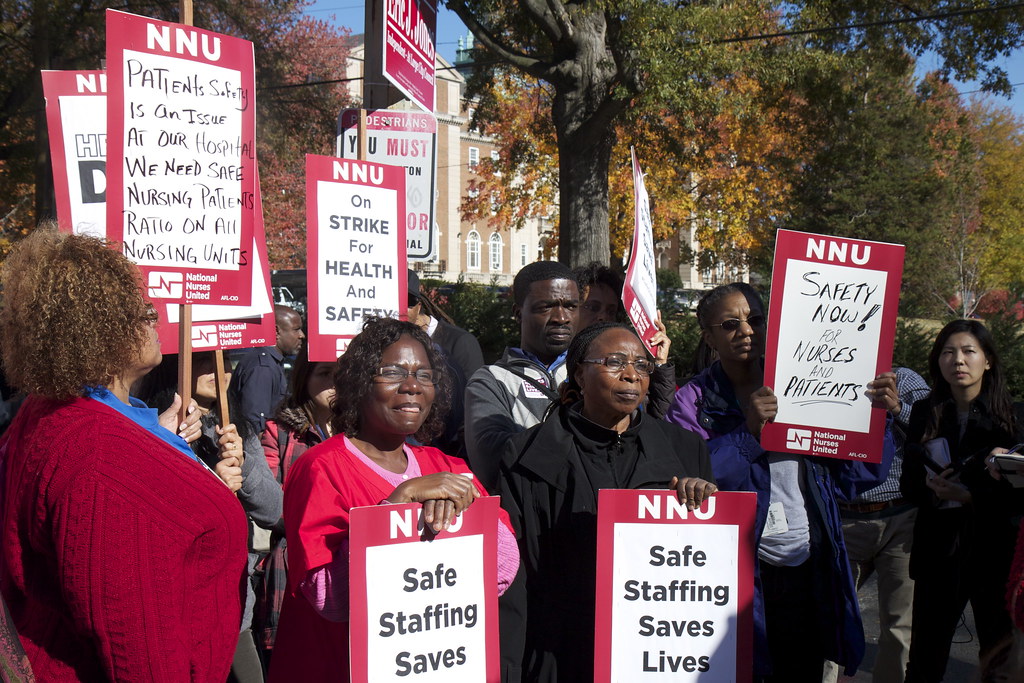The recent nurse’s strike at the Staten Island University Hospital is a reminder that healthcare workers continue to be underpaid, understaffed and overworked, even after the COVID-19 pandemic. The tentative agreement is a step in the right direction to ensure that nurses in Staten Island can live and work in more equitable conditions.
About 1,300 nurses at SIUH north campus were set to strike on April 2 if an agreement was not reached, according to SI Live. However, the strike was averted after they reached a tentative agreement with the New York State Nurses Association on March 30.
During a speak-out on March 13, many of the nurses said that although they want to stay on the island to care for their community, they are forced to find work elsewhere because of the low wages.
“The average base pay at SIUH-Northwell is now $11,573 below the base pay for nurses at other similar New York City hospitals,” NYSNA President Nancy Hagans said during the speak-out.
The tentative contract agreement would increase wages by 22.12% and would also include annual pay increases, adjusted pay for market changes and pay based on level of experience. Should the contract be ratified, these conditions would be in effect for three years.
The COVID-19 pandemic shed light on communities’ dependence on healthcare workers and how they are often underappreciated for their services. However, the potential strike showed that these concerns have still not been addressed and that the city’s healthcare system prefers profit and convenience over human life.
New Yorkers already struggle with getting the healthcare resources they need, thus resulting in an increased demand for healthcare workers. However, it’s also unfair to expect people to enter a field that is already demanding, but now also inequitable and incredibly understaffed. This only adds to the burden of providing adequate care to the communities that nurses care for the most.
The SIUH nurse’s strike threat highlights the continued challenges faced by healthcare workers post-pandemic. The tentative agreement offers a beacon of hope for improved conditions. This development underscores the essential role of nurses in our healthcare system and reflects a growing acknowledgment of their worth and contributions.






